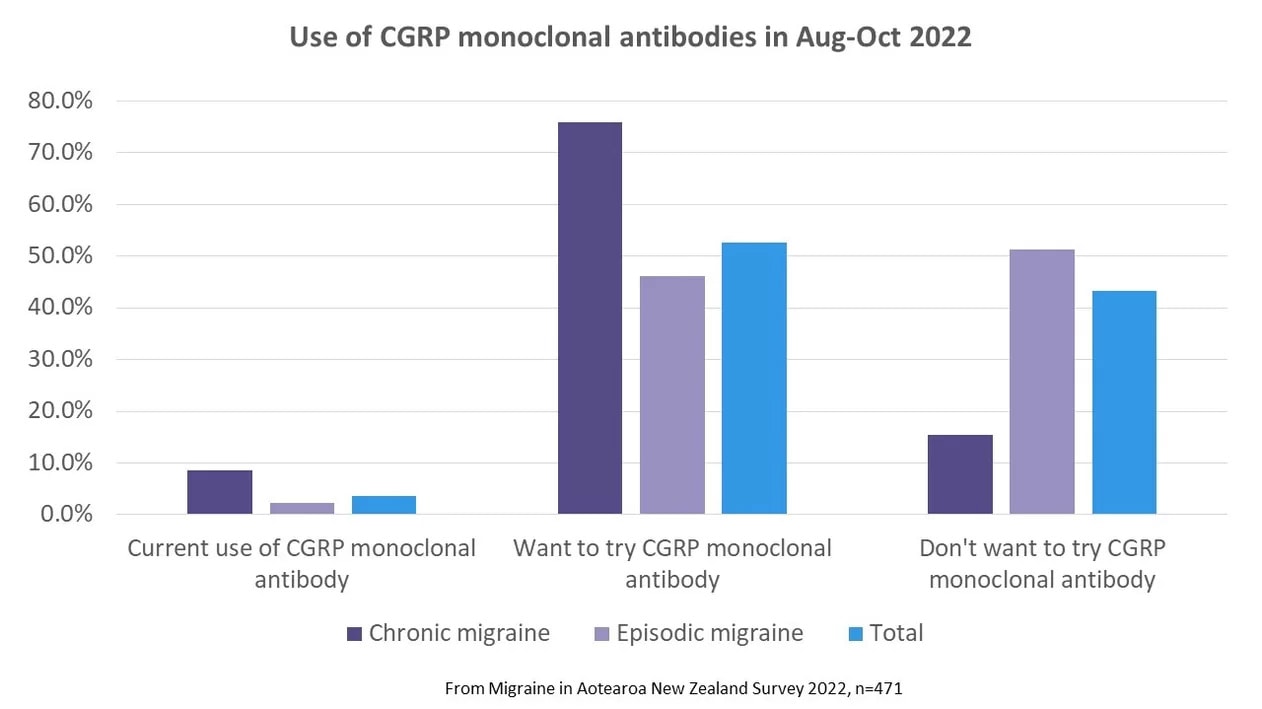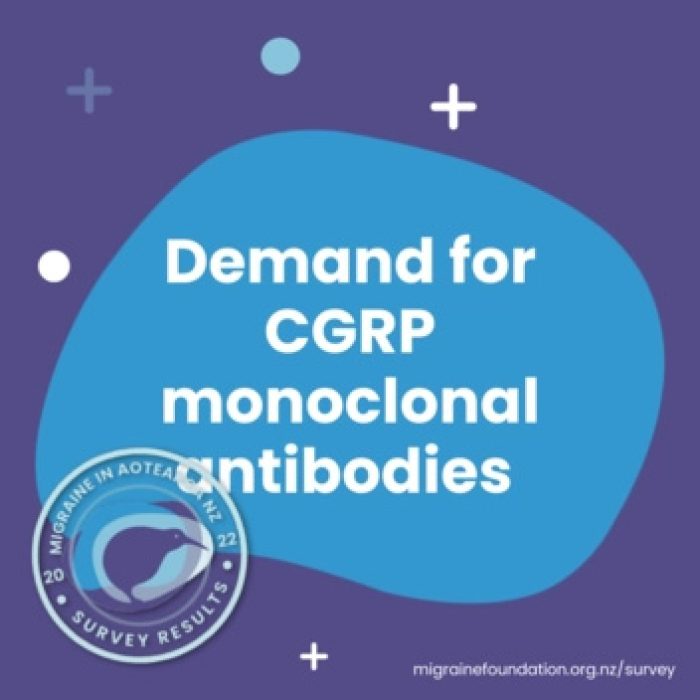Results from the Migraine in Aotearoa New Zealand Survey 2022
Medications that block the action of calcitonin gene-related peptide (CGRP) are the new force in migraine treatment. Research spearheaded by Professor Peter Goadsby at King’s College, London, established that migraine was caused by “dysfunctional neuropeptide production in the trigeminal nerve”¹, which blew away previous notions of migraine being a vascular disorder, or allergic, or psychosomatic. That dysfunctional neuropeptide was CGRP, acting around the largest cranial nerve (the trigeminal nerve) in the body, which is responsible for processing sensory information and providing motor control of the face, including the forehead, cheeks, jaw and teeth. The new medications targeting CGRP have been developed specifically to treat migraine and include monoclonal antibodies and gepants.
At the time of the Migraine in Aotearoa New Zealand Survey 2022, which ran from 22 August to 7 October, there were two CGRP monoclonal antibodies available in the country, although neither were funded. These were erenumab (Aimovig) and galcanezumab (Emgality). Emgality had only been launched in September 2022 and Aimovig was only available from one pharmacy in Auckland and cost $678 a month (plus courier fees, if you weren’t in Auckland), so neither were widely accessible.
So it’s not surprising to find that only 17 people were taking a CGRP monoclonal antibody at the time of the survey (4% of all respondents to the questions about these medications). What is surprising is that over half of respondents, and 76% of all those with chronic migraine, wanted to try a CGRP monoclonal antibody.

People explained why they did or didn’t want to try them in a later open-ended question, which explained that this was a new class of preventive medication specifically developed to target migraine and that had fewer side effects than most other preventives. For those who did not want to try them, reasons included:
- lack of knowledge
- never having been offered them by a doctor
- prohibitive cost
- concern about side effects
- migraine attacks not frequent or severe enough to warrant preventive treatment.
Interestingly, many people who initially indicated they would not want to try them, said that they would do in the open-ended question, especially if they had more information, the side effects were minimal, it was funded or recommended by a doctor.
People who did want to try them had often had little relief from other preventive medications or had experienced intolerable side effects. For some, their migraine attacks were so severe or poorly controlled they “would try anything”!
As awareness of the CGRP medications spreads across health professionals and people with migraine, lack of knowledge and doctors not discussing these as an option for people with severe and frequent migraine attacks should no longer be barriers to use. However, cost remains a considerable obstacle, particularly for those who are unable to work. We continue to wait for Pharmac’s decisions on whether to fund these medications, which could make them accessible to many more people with frequent migraine attacks who have not been well served by existing treatments.
References
- Burton, A. (2023). Profile: Peter Goadsby: Knowledge of politics, politics of knowledge. Lancet Neurology, 22, 470.


